Menu

A child’s brain constantly absorbs information and skills like a sponge. From before birth, their brains are busy growing and learning. As infants, their brains expand, especially as they learn basic motor skills like crawling and walking.
During the toddler years, their brains rapidly develop cognitive abilities such as problem-solving and language skills. Without the right nutrients, this crucial development could be stunted, affecting memory, attention, and learning in the future.
So, providing proper nutrition during these early years is essential for supporting their brain growth and development.
During the first 3 years of a child’s life, nutrition is crucial in shaping their future health, well-being, and ability to thrive. From conception until their third birthday, their nutrients through breast milk, baby formula, and solid foods profoundly impact their developing brain.
These foods aren’t just about filling their tummies; they provide the essential nutrients their growing brains need to reach their full potential. These early dietary choices can have long-lasting effects on a child’s cognitive development and overall health.
The brains of normal children develop in a complex process involving changes in the number and organisation of brain cells in a specified sequence. The most active period of neurologic development occurs in the first 1,000 days of life. This period, beginning at conception and ending at the start of the third postnatal year, is a time of tremendous opportunity for neuro-development and great vulnerability.
All nutrients are crucial for brain growth and function. According to AAP, the following are specific nutrients that are essential during early development.
Protein: Essential for building and repairing brain tissue, They play a vital role in supporting brain growth, ensuring the proper size of brain structures, and contributing to the formation of essential neural connections.
Foods rich in protein include
Omega-3 fatty acids: Long-chain polyunsaturated fatty acids, such as omega-3 fatty acids support the structure and function of brain cell membranes, promote nerve cell growth and communication, and have been associated with improved cognitive function.
Foods rich in Omega-3 fatty acids include
Choline: Choline is crucial for early brain development. A 2020 review of 54 studies found that adding choline to a child’s diet in the first 1,000 days of life could protect against nerve cell damage, improve cognitive function, and support overall brain development.
Foods rich in choline include
Iron: Necessary for oxygen transport in the blood, including to the brain, and for the production of neurotransmitters. Iron deficiency has also been associated with attention deficit hyperactivity disorder study says.
To guarantee your child’s iron intake, prepare shellfish and red meat, rich sources of iron. Additionally, consider incorporating legumes, pumpkin seeds, and spinach into their diet, as these foods also provide iron.
Folate: According to research, children with sufficient folate intake demonstrated better cognitive scores compared to those with insufficient folate intake. You’ll find folate in leafy greens and fortified foods like breads and cereals.
Zinc: Zinc plays multiple roles in the human body. Besides boosting the immune system, it aids in protein and DNA production, assists in wound healing, supports childhood growth, and acts as an antioxidant.
Zinc occurs naturally in many foods, such as beans, meat, and fish. It is also available as a dietary supplement.
Vitamin A: Vitamin A plays an important role in vision and bone growth and helps protect your child’s body from infections. It can be found in liver, fish, dairy products, and colourful fruits and vegetables like carrots, sweet potatoes, and spinach.
Vitamin D: Vitamin D promotes healthy bones by regulating calcium levels. It also contributes to the normal functioning of the immune system, keeping your child healthy and alert. Sources of vitamin D include fatty fish like salmon and tuna, egg yolks, fortified dairy and plant-based milk products, and exposure to sunlight.
Vitamin B6 and B12: Vitamin B6 is crucial for processing proteins, fats, and carbohydrates, as well as forming red blood cells and neurotransmitters.
Meanwhile, Vitamin B12 is vital in brain development, neural myelination, and cognitive function. Insufficient vitamin B12 during early childhood can lead to negative health effects, such as impaired cognitive development.
Iodine is necessary to produce thyroid hormones, which play a crucial role in brain development, particularly during pregnancy and early childhood. Iodine deficiency can lead to cognitive impairment and developmental delays.
While no single food can guarantee perfect brain development in toddlers, certain foods are rich in a variety of essential nutrients. However, it’s important to introduce new foods cautiously to avoid any potential allergies.
Eggs are nutritious and a favourite among young children. Packed with brain-boosting nutrients like choline, vitamin B12, and protein, they support normal brain development and cognitive function. Just two whole eggs a day can provide choline intake for children 8 and younger.
In 2017, a study indicated that Americans consume choline from eggs. A large egg yolk contains 125 milligrams (mg) of choline, meeting half the requirement for children aged 4–8.

You can easily incorporate leafy greens like spinach and kale into your child’s meals by adding them to dishes like soups, stir-fries, or pasta sauces. These greens are rich in iron and folate, which are important for your child’s growth and development. Plus, they add extra nutrients and flavour to their meals!
Research suggests that children who consume adequate folate exhibit better cognitive abilities than those with insufficient intake.

Nuts, seeds, and nut butter are fantastic snacks packed with protein and zinc, crucial for your child’s brain growth and memory development.
However, whole nuts and seeds can pose a choking risk, so opt for small amounts of peanut butter mixed with water or peanut-flavoured puff snacks instead. Just ensure the puffs are made from real peanuts without any artificial additives.
Beans provide essential nutrients like zinc, protein, iron, folate, and choline, which are beneficial for brain development. Certain varieties like kidney, pinto, and soybeans also offer high omega-3 fatty acids.
Additionally, adding lentils to soups, dahls, and curries is a tasty and nutritious way to incorporate them into meals. The soft texture of red lentils makes them particularly suitable for younger children, as they’re easier to chew and digest.
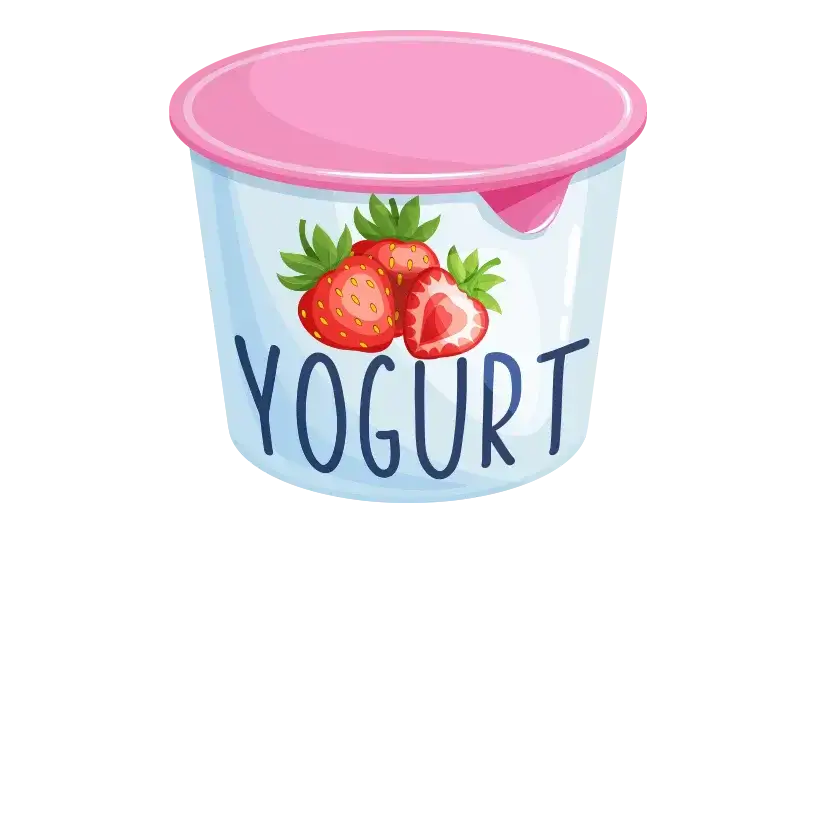
Studies indicate that the microbiome is crucial for brain development. Probiotics in fermented foods like Greek yoghurt can help maintain a healthy microbiome.
Unsweetened yoghurt is a simple and kid-friendly option for promoting brain growth. It contains essential nutrients like protein, zinc, choline, and iodine.
Iodine is particularly crucial for children as it supports the production of thyroid hormones, which are essential for brain development and neurological processes.

They are excellent for promoting brain development as they contain protein, zinc, iron, choline, iodine, and omega-3 fats.
However, avoiding high-mercury seafood like tuna and swordfish is important, as excessive mercury can harm a child’s developing nervous system. Instead, choose low-mercury options such as shrimp, salmon, tilapia, crab, or cod.
Whole grains support babies’ concentration by providing a steady energy source to their brains. With a low glycemic index, they release glucose into the bloodstream slowly, helping keep your child alert throughout the day.
Additionally, whole grains are rich in folate, vital for optimal brain function.

Scientific evidence shows that strawberries, blackberries, blueberries, and other berries are incredibly beneficial for the brain. They’re rich in antioxidants that combat the damaging effects of free radicals.
Berries’ vitamin C content boosts children’s learning and memory and prevents oxidative stress in the brain.
Eggs are nutritious and a favourite among young children. Packed with brain-boosting nutrients like choline, vitamin B12, and protein, they support normal brain development and cognitive function. Just two whole eggs a day can provide choline intake for children 8 and younger.
In 2017, a study indicated that Americans consume choline from eggs. A large egg yolk contains 125 milligrams (mg) of choline, meeting half the requirement for children aged 4–8.

You can easily incorporate leafy greens like spinach and kale into your child’s meals by adding them to dishes like soups, stir-fries, or pasta sauces. These greens are rich in iron and folate, which are important for your child’s growth and development. Plus, they add extra nutrients and flavour to their meals!
Research suggests that children who consume adequate folate exhibit better cognitive abilities than those with insufficient intake.

Nuts, seeds, and nut butter are fantastic snacks packed with protein and zinc, crucial for your child’s brain growth and memory development.
However, whole nuts and seeds can pose a choking risk, so opt for small amounts of peanut butter mixed with water or peanut-flavoured puff snacks instead. Just ensure the puffs are made from real peanuts without any artificial additives.
Beans provide essential nutrients like zinc, protein, iron, folate, and choline, which are beneficial for brain development. Certain varieties like kidney, pinto, and soybeans also offer high omega-3 fatty acids.
Additionally, adding lentils to soups, dahls, and curries is a tasty and nutritious way to incorporate them into meals. The soft texture of red lentils makes them particularly suitable for younger children, as they’re easier to chew and digest.

Studies indicate that the microbiome is crucial for brain development. Probiotics in fermented foods like Greek yoghurt can help maintain a healthy microbiome.
Unsweetened yoghurt is a simple and kid-friendly option for promoting brain growth. It contains essential nutrients like protein, zinc, choline, and iodine.
Iodine is particularly crucial for children as it supports the production of thyroid hormones, which are essential for brain development and neurological processes.

They are excellent for promoting brain development as they contain protein, zinc, iron, choline, iodine, and omega-3 fats.
However, avoiding high-mercury seafood like tuna and swordfish is important, as excessive mercury can harm a child’s developing nervous system. Instead, choose low-mercury options such as shrimp, salmon, tilapia, crab, or cod.
hole grains support babies’ concentration by providing a steady energy source to their brains. With a low glycemic index, they release glucose into the bloodstream slowly, helping keep your child alert throughout the day.
Additionally, whole grains are rich in folate, vital for optimal brain function.

Scientific evidence shows that strawberries, blackberries, blueberries, and other berries are incredibly beneficial for the brain. They’re rich in antioxidants that combat the damaging effects of free radicals.
Berries’ vitamin C content boosts children’s learning and memory and prevents oxidative stress in the brain.
Diet and nutrition: What children eat directly impacts their brain development. Nutrient-rich foods like fruits, vegetables, whole grains, and lean proteins are necessary for optimal brain function and growth. Get creative with recipes and involve your child in meal planning and preparation to encourage healthy eating habits.
Physical activity and fitness: Regular exercise strengthens muscles and bones and significantly benefits brain health. Physical activity stimulates the release of chemicals in the brain that promote the growth of new brain cells and improve overall cognitive function. Make physical activity a regular part of your family routine. Plan fun activities like walks, bike rides, or playing at the park together. Limit sedentary activities and encourage active playtime.
Inadequate sleep: Sufficient sleep is crucial for brain development, especially in children. During sleep, the brain consolidates memories, processes information, and restores energy. Lack of sleep can impair cognitive function, attention, and mood. Establish a consistent bedtime routine to help your child wind down before bed. Create a calm and comfortable sleep environment free from distractions. Limit screen time before bedtime and encourage relaxation techniques like reading or gentle stretching.
Inappropriate screen time: Excessive screen time, particularly on devices like smartphones, tablets, and computers, can negatively impact brain development in children. It can lead to attention problems, poor sleep quality, and decreased cognitive abilities. Set limits on screen time and establish screen-free zones in your home. Encourage alternative activities like playing outdoors, reading books, or engaging in creative hobbies. Be a positive role model by limiting your own screen time
Environment: A stimulating and nurturing environment is essential for optimal brain development. Positive interactions with caregivers, access to educational resources, and exposure to diverse experiences contribute to a child’s cognitive and emotional growth. Engage in meaningful interactions with your child, such as reading together or engaging in imaginative play. Provide access to educational materials and encourage curiosity and exploration. Create a safe and nurturing space where your child feels loved and supported.

These meats often contain additives like nitrites, which can produce harmful compounds when cooked at high temperatures. These compounds have been linked to inflammation in the body, including the brain, which can impair cognitive function over time.
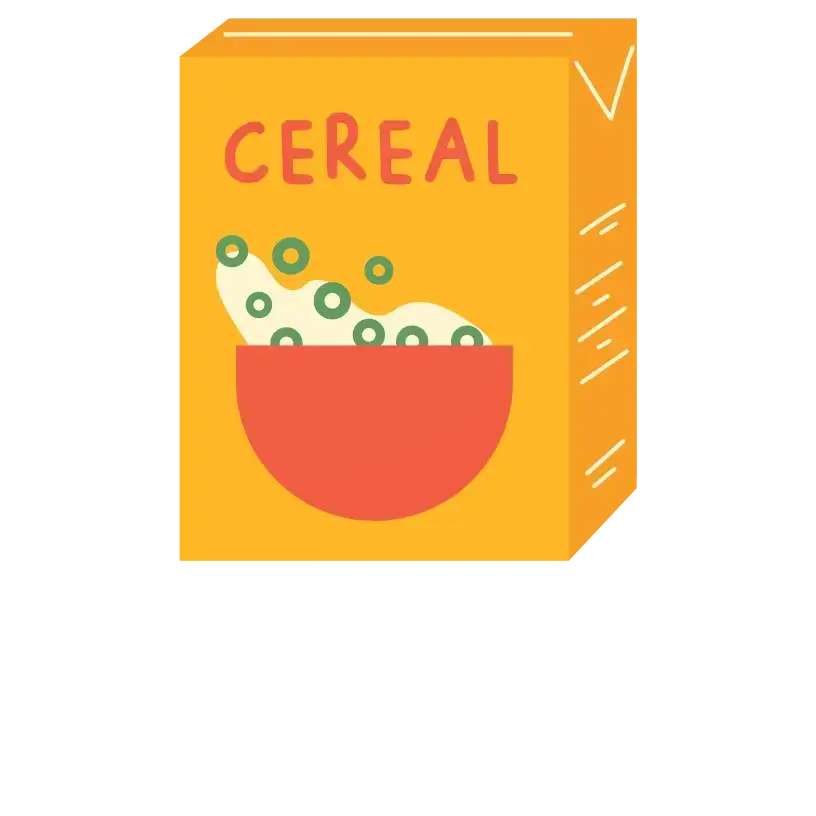
Many breakfast cereals marketed to children are loaded with added sugars, which can cause rapid spikes and crashes in blood sugar levels. This can lead to fatigue, irritability, and difficulty concentrating, impacting a child’s ability to focus and learn.

These beverages are high in sugar and provide little to no nutritional value. Excessive sugar intake has been linked to cognitive decline and may increase the risk of conditions like ADHD over time.

Snacks that are artificially flavoured often contain synthetic additives and preservatives, which may have neurotoxic effects. These additives can disrupt normal brain function and may contribute to behavioural issues in children.
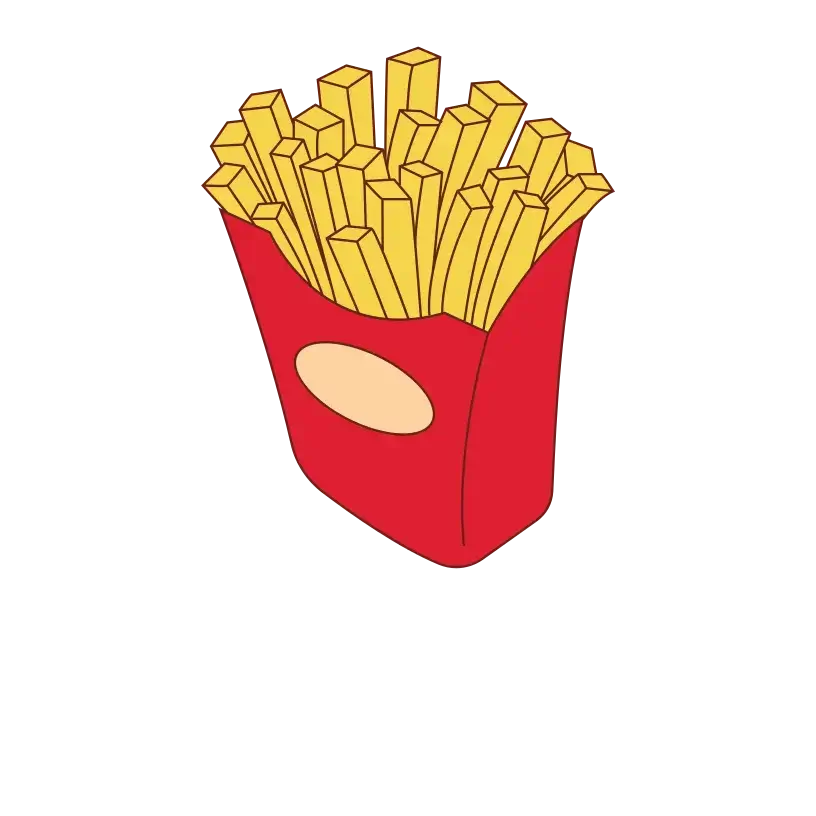
Trans fats, commonly found in fried and processed foods, are known to increase inflammation in the body and impair brain function.
Certain types of fish, like shark and swordfish, can contain high levels of mercury, which is toxic to the nervous system. Mercury exposure during development can impair cognitive function and may lead to learning disabilities and behavioural problems.
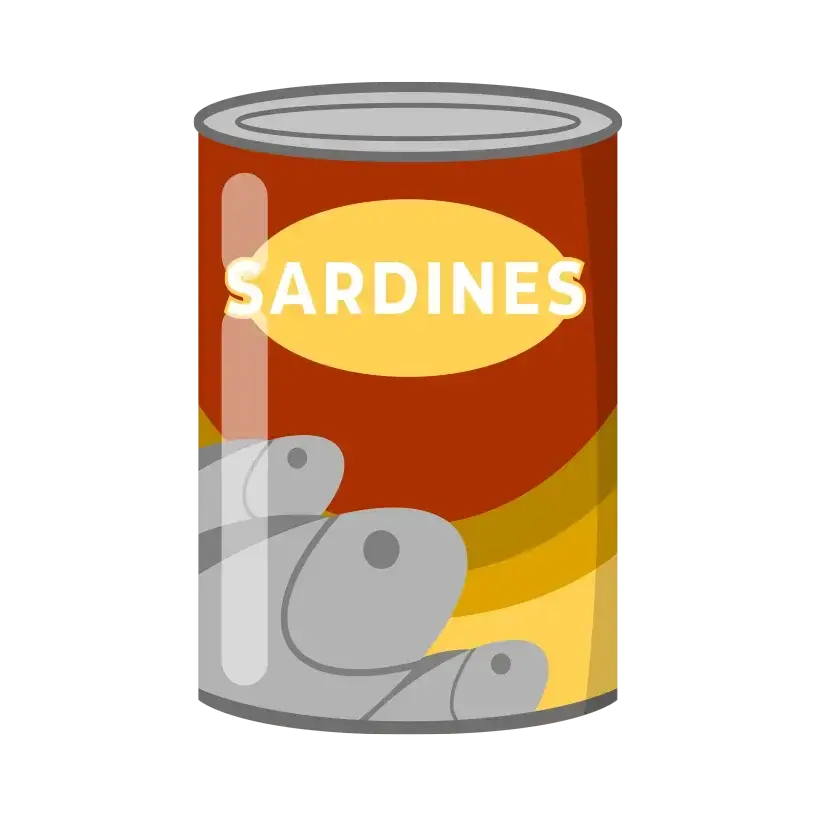
These additives, such as artificial colours and flavours, can have adverse effects on brain health. Certain additives may increase hyperactivity and decrease attention span in children.

Foods that are deep-fried are often high in unhealthy fats and calories. Consuming these foods regularly can lead to obesity, which is associated with cognitive decline and contributes to inflammation and oxidative stress in the brain.

Fast food is typically high in unhealthy fats, sodium, and sugar, and lacks essential nutrients. Regular consumption of fast food has been linked to poor cognitive function, decreased memory, and an increased risk of obesity-related conditions.

Similar to sugary cereals, desserts like cakes and pastries can cause spikes and crashes in blood sugar levels. Over time, this can lead to insulin resistance, which is associated with cognitive impairment.

Eggs are nutritious and a favourite among young children. Packed with brain-boosting nutrients like choline, vitamin B12, and protein, they support normal brain development and cognitive function. Just two whole eggs a day can provide choline intake for children 8 and younger.

Refined grains are often stripped of their natural fibre, vitamins, and minerals during processing, leaving behind mostly starch. This lack of nutrients can contribute to various health issues in children. Refined grains tend to spike blood sugar levels rapidly, leading to energy crashes and potential mood swings.
Additionally, they offer little satiety, which can lead to overeating and weight gain. Regular consumption of refined grains has been linked to an increased risk of obesity, type 2 diabetes, and heart disease in children.
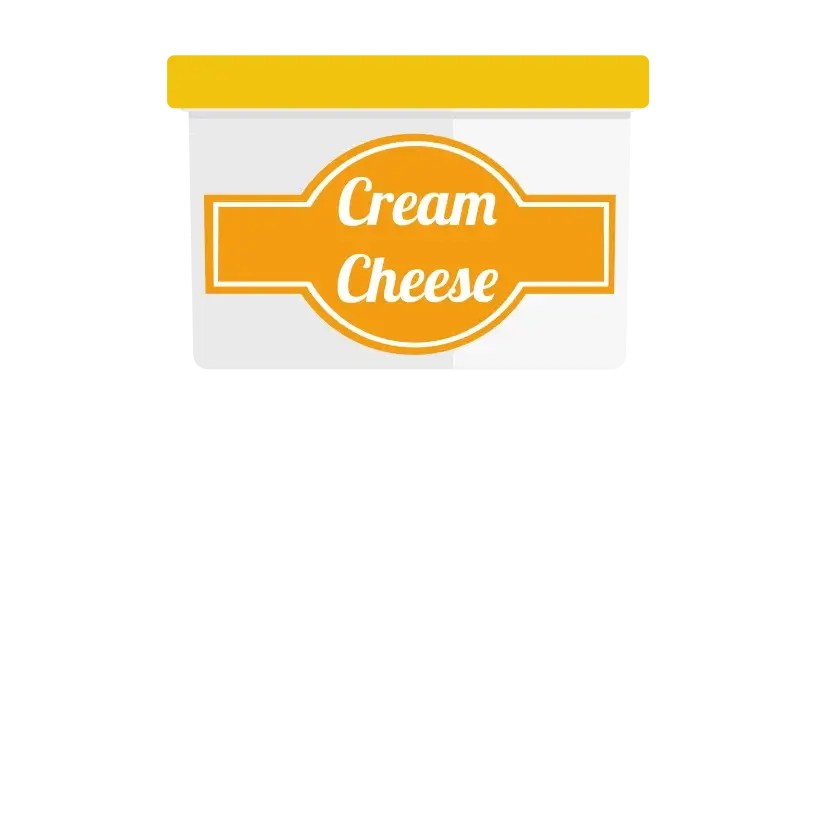
Processed cheese products often contain high levels of saturated fats and sodium, which can contribute to inflammation and impair cognitive function over time.
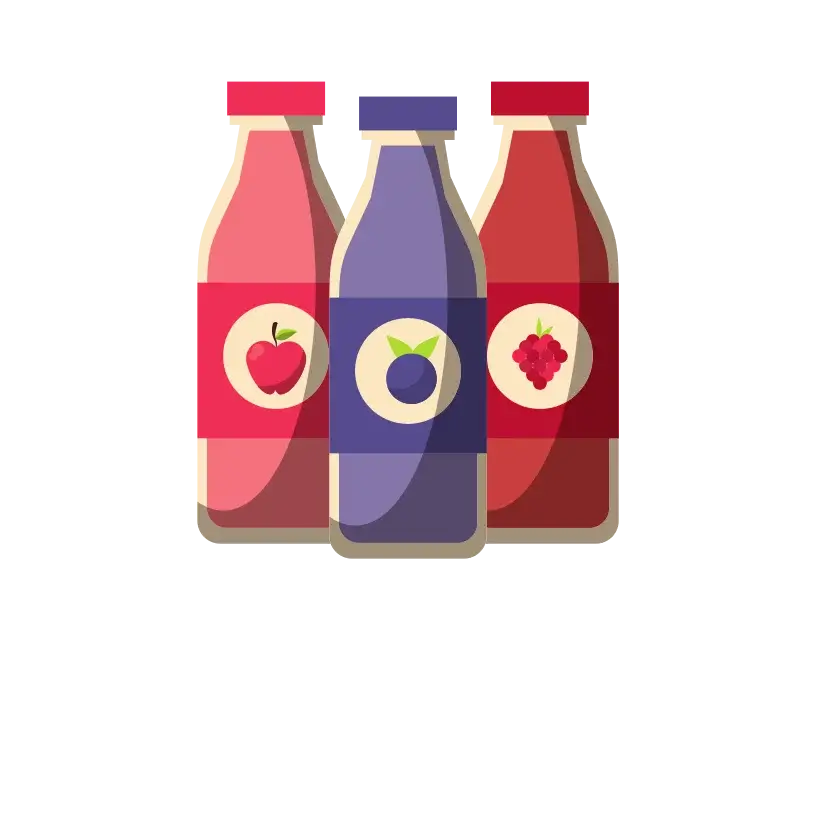
While fruit juices may seem healthy, they are often high in sugar and lack the fibre found in whole fruits. Excessive sugar intake can lead to insulin resistance and may impair cognitive function.
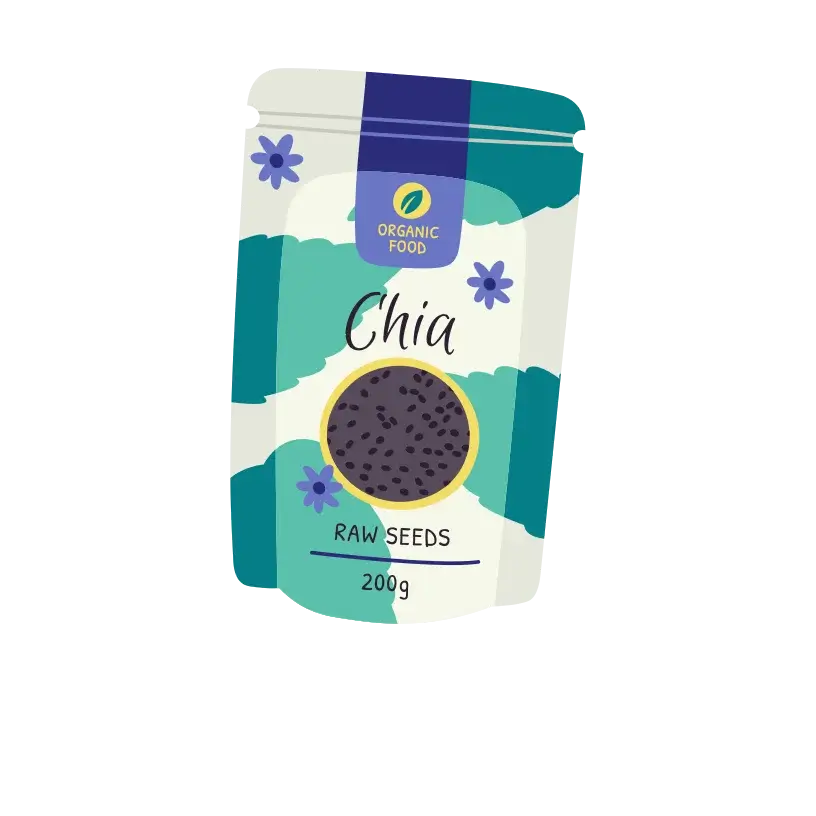
Some artificial sweeteners have been associated with adverse effects on brain health, including changes in neurotransmitter levels and alterations in gut microbiota. While more research is needed, it’s best to limit exposure to these additives, especially in children.

These meats often contain additives like nitrites, which can produce harmful compounds when cooked at high temperatures. These compounds have been linked to inflammation in the body, including the brain, which can impair cognitive function over time.

Many breakfast cereals marketed to children are loaded with added sugars, which can cause rapid spikes and crashes in blood sugar levels. This can lead to fatigue, irritability, and difficulty concentrating, impacting a child’s ability to focus and learn.

These beverages are high in sugar and provide little to no nutritional value. Excessive sugar intake has been linked to cognitive decline and may increase the risk of conditions like ADHD over time.

Snacks that are artificially flavoured often contain synthetic additives and preservatives, which may have neurotoxic effects. These additives can disrupt normal brain function and may contribute to behavioural issues in children.

Trans fats, commonly found in fried and processed foods, are known to increase inflammation in the body and impair brain function.
Certain types of fish, like shark and swordfish, can contain high levels of mercury, which is toxic to the nervous system. Mercury exposure during development can impair cognitive function and may lead to learning disabilities and behavioural problems.

These additives, such as artificial colours and flavours, can have adverse effects on brain health. Certain additives may increase hyperactivity and decrease attention span in children.

Foods that are deep-fried are often high in unhealthy fats and calories. Consuming these foods regularly can lead to obesity, which is associated with cognitive decline and contributes to inflammation and oxidative stress in the brain.

Fast food is typically high in unhealthy fats, sodium, and sugar, and lacks essential nutrients. Regular consumption of fast food has been linked to poor cognitive function, decreased memory, and an increased risk of obesity-related conditions.

Similar to sugary cereals, desserts like cakes and pastries can cause spikes and crashes in blood sugar levels. Over time, this can lead to insulin resistance, which is associated with cognitive impairment.

Excessive sodium intake can lead to increased blood pressure, putting children at risk for heart disease and other cardiovascular issues later in life. Additionally, high-sodium snacks often contain little nutritional value and can displace healthier food options in a child’s diet, contributing to poor overall nutrition.

Refined grains are often stripped of their natural fibre, vitamins, and minerals during processing, leaving behind mostly starch. This lack of nutrients can contribute to various health issues in children. Refined grains tend to spike blood sugar levels rapidly, leading to energy crashes and potential mood swings.
Additionally, they offer little satiety, which can lead to overeating and weight gain. Regular consumption of refined grains has been linked to an increased risk of obesity, type 2 diabetes, and heart disease in children.

Processed cheese products often contain high levels of saturated fats and sodium, which can contribute to inflammation and impair cognitive function over time.

While fruit juices may seem healthy, they are often high in sugar and lack the fibre found in whole fruits. Excessive sugar intake can lead to insulin resistance and may impair cognitive function.

Some artificial sweeteners have been associated with adverse effects on brain health, including changes in neurotransmitter levels and alterations in gut microbiota. While more research is needed, it’s best to limit exposure to these additives, especially in children.
Enjoy meals together as a family regularly: Eating together encourages bonding and creates a positive environment around food. It allows you to model healthy eating habits and introduce various nutritious foods to your children.
Offer nutritious foods and snacks: Providing a variety of healthy foods exposes children to different flavours and nutrients, helping them develop a well-rounded palate. Include fruits, vegetables, whole grains, lean proteins, and dairy products in meals and snacks to ensure they receive a wide range of essential nutrients.
Model healthy eating habits: Children often mimic the eating behaviours of their parents and caregivers. By consistently choosing nutritious foods and enjoying healthy meals, adults can influence children to make similar choices.
Avoid conflicts over food choices: Pressuring children to eat certain foods or restricting their choices can create negative associations with mealtime and lead to resistance or picky eating behaviours. Instead, create a relaxed atmosphere around food and respect children’s preferences while gently encouraging them to try new foods.
Involve your children in meal preparation: Engaging children in meal planning, grocery shopping, and food preparation empowers them to make healthier choices and fosters a positive relationship with food. Children who participate in cooking are likely to try new foods and develop essential culinary skills later in life.
The Australian Dietary Guidelines advise children to consume diverse foods from the five food groups daily and stay hydrated by drinking plenty of water for good health.
Toddlers have unique nutritional requirements due to their growth and development. While there isn’t one superfood guaranteeing optimal brain development, certain foods are rich in the essential nutrients outlined in the Australian Dietary Guidelines’ five food groups.
The five food groups:
Choose foods that support your baby’s brain development, like eggs, seafood, or leafy greens, and include it in meals such as purees or mashes. Blend brain-boosting foods for older babies to create a nutritious finger food platter. This ensures your little one gets the essential nutrients needed for their growing brain while enjoying a variety of tasty options.
Foods containing pathogens and high levels of mercury, like tuna and swordfish, can potentially impair a baby’s brain development. Too much mercury can have adverse effects on the developing nervous system.
Supplements Like vitamin D, and vitamin B12 are essential for your baby’s brain development. Ensuring your little one gets enough vitamin B12 can help boost their energy, improve their memory, and make learning new things easier. Plus, it can also contribute to a happier mood and reduce feelings of sadness or depression. Including foods rich in vitamin B12 in your baby’s diet can support their overall mental well-being as they grow.
Vitamin D is for a healthy immune system. It helps the body fight off infections and reduces the risk of developing autoimmune diseases. Vitamin D is also necessary for proper muscle function and strength. Children with low vitamin D levels may experience muscle weakness and fatigue.
Engaging in brain-stimulating activities and playtime is crucial for your child’s development. Here are some ideas to boost their cognitive skills:
The Australian Dietary Guidelines advise children to consume diverse foods from the five food groups daily and stay hydrated by drinking plenty of water for good health.
Toddlers have unique nutritional requirements due to their growth and development. While there isn’t one superfood guaranteeing optimal brain development, certain foods are rich in the essential nutrients outlined in the Australian Dietary Guidelines’ five food groups.
The five food groups:
Choose foods that support your baby’s brain development, like eggs, seafood, or leafy greens, and include it in meals such as purees or mashes. Blend brain-boosting foods for older babies to create a nutritious finger food platter. This ensures your little one gets the essential nutrients needed for their growing brain while enjoying a variety of tasty options.
Foods containing pathogens and high levels of mercury, like tuna and swordfish, can potentially impair a baby’s brain development. Too much mercury can have adverse effects on the developing nervous system.
Supplements Like vitamin D, and vitamin B12 are essential for your baby’s brain development. Ensuring your little one gets enough vitamin B12 can help boost their energy, improve their memory, and make learning new things easier. Plus, it can also contribute to a happier mood and reduce feelings of sadness or depression. Including foods rich in vitamin B12 in your baby’s diet can support their overall mental well-being as they grow.
Vitamin D is for a healthy immune system. It helps the body fight off infections and reduces the risk of developing autoimmune diseases. Vitamin D is also necessary for proper muscle function and strength. Children with low vitamin D levels may experience muscle weakness and fatigue.
Engaging in brain-stimulating activities and playtime is crucial for your child’s development. Here are some ideas to boost their cognitive skills:
1. AAP Publications: ‘Feeding’ brain development: Key nutrients essential during the first 1,000 days
2. ACS: Strong scientific evidence that eating berries benefits the brain
3. Australian Government National Health and Medical Research Council: Recommended number of serves for children, adolescents and toddlers
4. BetterHealth: Carbohydrates and the glycaemic index
5. Jirout, J., LoCasale-Crouch, J., Turnbull, K., Gu, Y., Cubides, M., Garzione, S., Evans, T.M., Weltman, A.L. and Kranz, S., 2019. How lifestyle factors affect cognitive and executive function and the ability to learn in children. Nutrients, 11(8), p.1953.
6. Kaiser Permanente: How to boost your brainpower with 3 supplements
7. KidsHealth: Healthy Eating
8. National Library of Medicine: Choline, Neurological Development and Brain Function: A Systematic Review Focusing on the First 1000 Days
9. National Library of Medicine: Fish consumption is associated with school performance in children in a non-linear way
10. National Library of Medicine: Food Science and Nutrition
11. National Library of Medicine: Higher Prevalence of Iron Deficiency as Strong Predictor of Attention Deficit Hyperactivity Disorder in Children
12. National Library of Medicine: The Influence of Early Nutrition on Brain Growth and Neurodevelopment in Extremely Preterm Babies: A Narrative Review
13. National Institute of Health: Zinc
14. Sampson, T.R. and Mazmanian, S.K., 2015. Control of brain development, function, and behaviour by the microbiome. Cell host & microbe, 17(5), pp.565-576.
15. UCLA Health: Baby brain food: 7 foods to fuel brain development
16. Wallace, T.C. and Fulgoni, V.L., 2017. Usual choline intakes are associated with egg and protein food consumption in the United States—nutrients, 9(8), p.839.
17. Wyeth Nutrition: Brain Foods and Nutrients for Kids – Boost Your Child’s Learning Abilities!
© Mindsmaking 2024